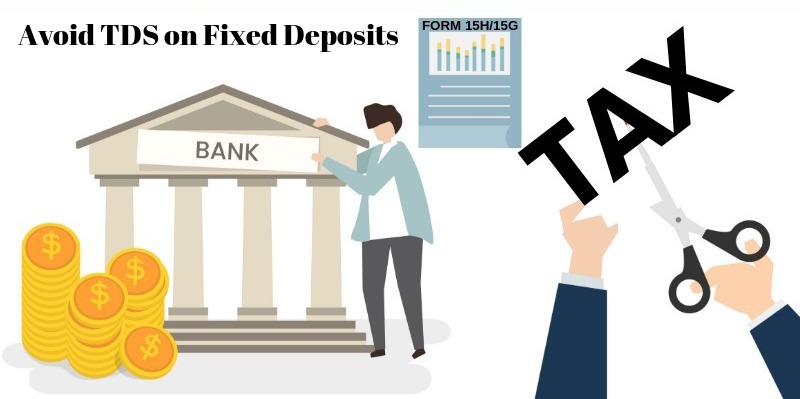
Fixed Deposits is one of the favorite way for those people who want to invest their money in the safest way where they can feel assured that their savings will not be lost and some interest is also earned on it.
Normally, FD service is provided by all banks and most NBFCs (Non-banking financial institution). Under this Fixed Deposit, people deposit a certain sum for an agreed period of time and in return, the bank or NBFC give a certain return on the deposited sum.
It gives better returns than a savings account, although if you withdraw from FD before its maturity then a certain penalty is levied and the amount you get will have a lower return than the actual rate decided for it at the time of deposit.
Table of Contents
Various types of FD schemes in which one can consider to invest are:
Regular FD, under this, the time period is pre-determined between 7 days to 10 years and the rate of interest is also pre-allocated.
Floating FD, under this all aspects are similar to regular FD except the rate of interest is based on market rate. Thus, the rate keeps getting revised automatically as per the change in base rate.
Special FD, under this the period for which FD can be done are not regular, but of kinds like 333, 444, 555, 699 days etc. The rate of interest is also higher than usual for these Fds.
Tax Saving FD, this FD is specifically for the purpose of saving income tax. It comes with a mandatory lock-in period of five years.
Recurring Deposit, under this scheme a certain amount, needs to be deposited each month over a fixed period of time. The rate of interest is predetermined for this deposit as well.
When is TDS deducted on Fixed Deposit
In case the interest earned on Fixed Deposit in a financial year is more than Rs. 10,000 than banks deduct TDS @ 10% plus 3% education cess. However, it must be noted that no TDS is deducted under section 80C of Income Tax.
In addition to the above condition, if the annual income of the individual is also above Rs. 2,50,000 or minimum income threshold for tax then TDS is deducted.
It is important to note here that, for senior citizens, TDS will be deducted in case the annual interest is more than Rs. 50,000.
How to avoid TDS on FD
In order to avoid TDS deduction on your FD, you can opt any of the following measure or their combination as it suits you.
- Multiple FD:You can opt to create multiple Fds in different banks in such a way that the total annual interest on it do not exceed Rs. 10,000. In this way, you can earn interest of more than Rs. 10,000 without getting your TDS deducted.
- Form 15G/15H: In case your income is below the minimum income tax threshold of Rs. 2,50,000 or Rs. 3,00,000 (for senior citizens), then Form 15G is submitted by regular individual declaring that his income is below the income tax limit thus, no TDS should be deducted. Senior citizens will submit the Form 15H for the same purpose.
- Split FD: You can also consider the option of taking one FD on your name and another on your spouse’ or children’s name. One FD as an individual and another as HUF. This way also, you can avoid TDS.
- FD’s Timing: For 1 year FD you can time your deposit to avoid TDS by starting somewhere in the middle of the year so that the interest earned in one financial year does not exceed Rs. 10,000.
In short, TDS is deducted on FD when the interest earned in one financial year exceeds Rs. 10,000 or 50,000 as the case may be. In addition to this, if the annual income of the concerned person is more than the minimum threshold for income tax. However, in case a person forgets to submit Form15G/15H, then TDS will be deducted.
Fixed Deposit is the preferred option for all those investors who are looking for a safe instrument to invest in. Different types of FD schemes are:
Regular FD, a lump sum amount deposited for a fixed period on a predetermined rate.
Floating FD, a lump sum amount deposited for a fixed period on a market rate. In this, the rate changes automatically as per change in base rate.
Special FD, a lump sum amount deposited for a fixed period like 333, 499, 555 days.
Tax Saving FD, it is specifically for saving income tax and it has a 5 year lock-in period.
TDS is deducted when the annual interest earned is more than Rs. 10,000 for individual and Rs. 50,000 for senior citizens. In addition, the annual income is also more than the minimum threshold for income tax then TDS @10% along with 3% education cess is deducted.
In order to avoid TDS consider following options
a) Split FD on to different names, like one on your name, one on your spouse, children etc. Also, you can take one FD as an individual and one as HUF.
b) Multiple FD creation with one FD in one bank in such a way that annual interest from each FD is below Rs. 10,000
c) Form 15G/15H can be submitted as a declaration that the annual income is less than the minimum threshold for income tax, in such case even if interest is more than Rs. 10,000 TDS will not be deducted.





